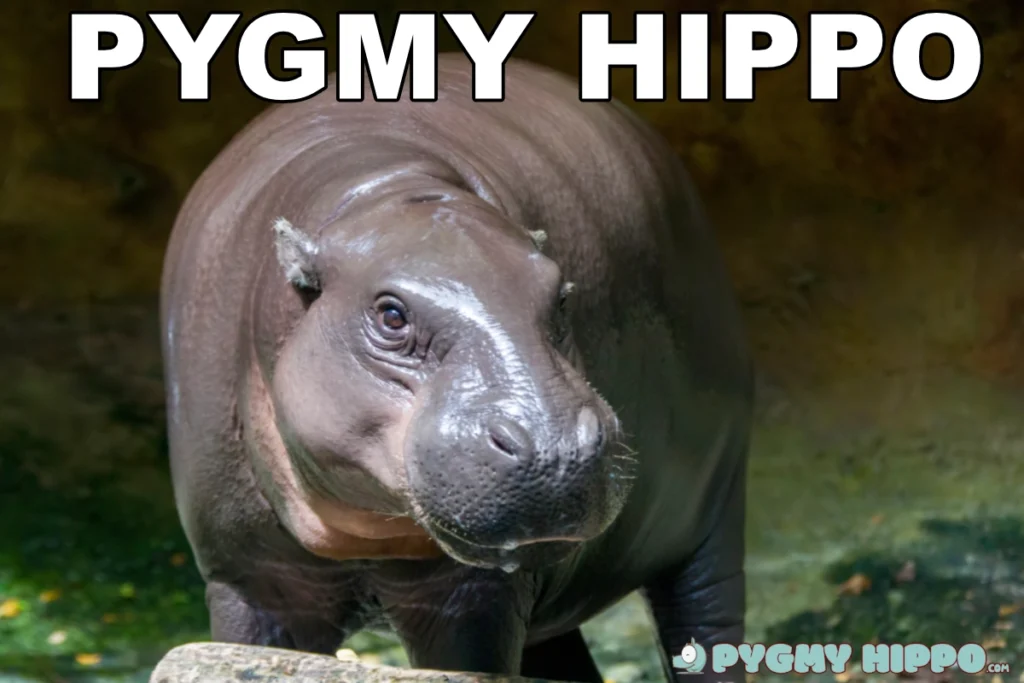10 Facts About Pygmy Hippos That Amaze And Delight
Pygmy hippos are an incredibly secretive species. The little we know about them is so remarkable it’s almost unbelievable. Shrouded in mystery due to their isolated swamp and rainforest dwellings, the astonishing diminutive pygmy hippo simultaneously intrigues and delights those fortunate to glimpse them firsthand. Even seasoned field conservationists may go years without crossing paths with these ephemeral pygmy hippoos as as they soundlessly meander through lightless jungle terrain each night.

So while rarely viewed, their enduring legacy as Africa’s most obscure diminutive hippopotamus continually captivates the rare witness to their gracing presence. Who wouldn’t marvel at stumbling upon a wee water cow casually chomping rainforest delicacies just out of sight? From their bristled alarm calls to stout water gliding profile, these gentle forest strangers charm via their quirky obscurity. Below are ten amazing facts about pygmy hippos that contribute to their mystique.
- Pygmy hippos produce their own sunscreen: Pygmy hippos secrete a reddish-pink fluid known as “blood sweat,” which isn’t actually blood or sweat at all. This unique substance provides a layer of moisturizing sunscreen and antibacterial protection, crucial for their well-being in the hot, humid environments they inhabit.
- Nighttime Foragers: Unlike their larger relatives, Pygmy hippos are predominantly nocturnal creatures. They spend the majority of their nights foraging alone in the dense forests, consuming a variety of plant material, which plays a significant role in seed dispersal and the health of their ecosystem.
- Solitary Swimmers: While the common hippopotamus lives in large, social groups, the Pygmy hippo leads a much more solitary existence. They are rarely seen with others outside of mating or mother-calf interactions, highlighting their unique social structure.
- Invisible Underwater Walkers: Pygmy hippos are adept swimmers, but unlike many aquatic mammals that swim by propelling themselves with their limbs, they often prefer to walk along the bottom of rivers and streams, almost like an underwater ballet, hidden from the view of the world above.
- Secretive Dwellers: The elusive nature of Pygmy hippos makes them one of the least studied large mammals. Their preference for dense forest habitats and nocturnal lifestyle contributes to the challenge of observing them in the wild, leaving much of their behavior and ecology a mystery.
- Impressive Divers: Despite their small size, Pygmy hippos have been known to dive and stay underwater for up to six minutes, a testament to their adaptability to both terrestrial and aquatic environments.
- Tiny but Mighty: At birth, Pygmy hippo calves are incredibly small, weighing only 6 to 14 kg (13 to 31 lbs), which is quite diminutive compared to their adult size of up to 275 kg (606 lbs). Despite their initial vulnerability, calves quickly gain strength and mobility.
- Rapid Underwater Reflexes: Pygmy hippos possess an automatic reflex to close their ears and nostrils when submerged, an adaptation that allows them to spend significant amounts of time in the water without the risk of drowning.
- Limited Habitat Range: The Pygmy hippo is found in only four West African countries: Liberia, Sierra Leone, Guinea, and Ivory Coast. Their survival is closely tied to the preservation of their natural forest and wetland habitats, which are increasingly under threat.
- Gestation Mystery: The gestation period of the Pygmy hippo is unusually long for their size, lasting about 6-7 months. This extended pregnancy is one of the many intriguing aspects of their reproduction that puzzles scientists, considering their solitary nature and the challenges of raising offspring in dense forest environments.